Building resilient, green livelihoods for people with disabilities
News | July 15, 2024
Insights from a livelihood barrier analysis in drought-affected communities in Turkana, Kenya. Written by Manuel Rothe & Anthony Kimathi Ngari.
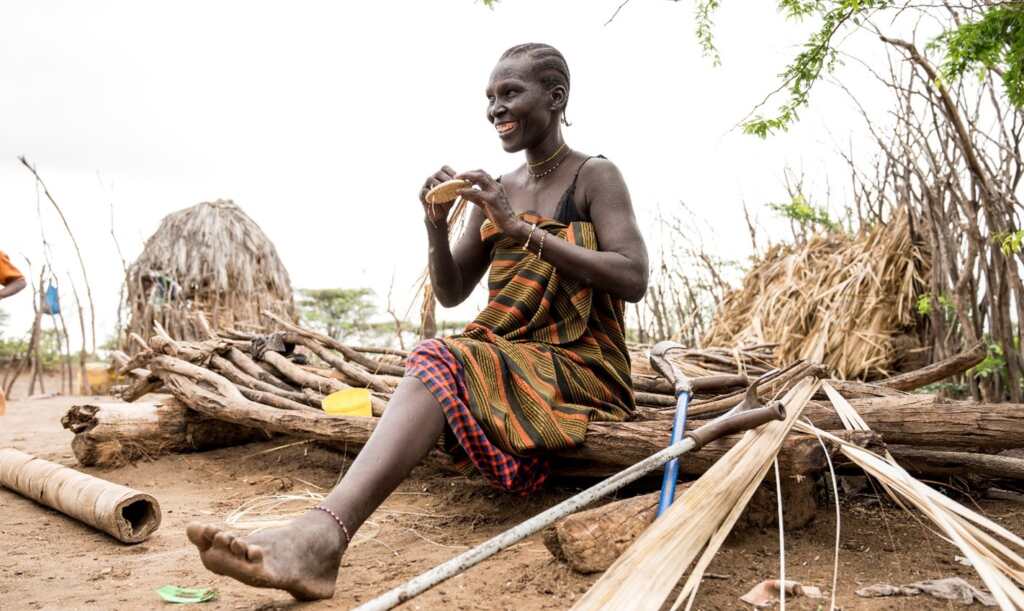
CBM Global conducted a livelihood barrier analysis in drought-affected communities of Turkana, Kenya, in collaboration with Nitiakara Disabled Self-Help Group and Turkana Pastoralist Development Organization (TUPADO). Ahead of an upcoming resilience project, we came together to identify barriers and opportunities for people with disabilities to build climate-smart livelihoods.
Before the barrier analysis workshop, we visited people in remote areas in Turkana, conducted a focus group discussion with men and women with disabilities and one with the members of a producer group, held four key informant interviews with market stakeholders in the capital of Lodwar and went on a transect walk to a local market with a deaf woman. In the workshop, we focused on bringing in the perspective of groups who are often underrepresented, including deaf people and people with cognitive and psychosocial disabilities.
What did we find?
There is a social dimension to building sustainable livelihoods.
Social integration is a precondition for building sustainable livelihoods. Participating in rights awareness sessions and joining self-help groups helps people with disabilities to exchange experiences, provide peer support, and build confidence. Participation in economic groups like farmer cooperatives, as well as in social and community activities, gives people with disabilities the opportunity to build networks and gain information relevant to their businesses.
“People with disabilities sometimes fear that they are not good enough to run a business. You have to build your confidence before you start.”
Michael Nakuwa, member of Nitiakara Disabled Self-Help Group and representative of the chamber of commerce
Financial inclusion protects livelihoods against climate disasters.
Financial inclusion and access to social protection are key factors for the sustainability of income-generating activities, protecting livelihoods from natural hazards and economic shocks. This requires savings groups to become more inclusive of persons with disabilities. Building digital literacy and acquiring identity documents to benefit from mobile banking services are important steps towards financial resilience.
Mobile phones open up digital opportunities.
Mobile phones, widely used in Turkana for managing cash transfers, were seen as an untapped potential for persons with disabilities. They can be a source for accessing information on climate-smart agricultural practices and weather updates. They help in accessing financial services without the need to visit a bank, marketing products without going to inaccessible marketplaces, and finding digital job opportunities without having to travel large distances. Affordable, accessible mobile phones with voice commands offer a solution for people with visual impairments.
“Mobile phones are assistive devices. Through our Whatsapp group we can learn and help each other, peer to peer. I can advertise my products and get ideas for new livelihood options.”
Mary Ataba, jewelry maker and chairperson of Nitiakara Disabled Self-Help Group
Market actors must recognize and overcome barriers.
People do not build their businesses and find jobs in isolation. Access to work and marketplaces and government services and participation in business membership organizations and cooperatives are vital for people with disabilities. This means identifying common barriers in the economic environment and advocating for more accessibility in mainstream services, rather than separate places or services for people with disabilities, is necessary.
“The way the markets are designed is a problem. They get so muddy, they are overcrowded and not accessible. If it takes you a long time to get there in the morning you end up at the back, where there are less customers.”
Veronica Alimlim, is a fruit seller and member of Nitiakara Disabled Self-Help Group
The green transition must be inclusive.
The implementation of the Turkana County Climate Change Adaptation plan includes initiatives to promote the solar electrification of rural areas, the construction of waste recycling plants, and the promotion of eco-tourism. To benefit from these opportunities, people with disabilities must be able to build the skills to find jobs in these new sectors. To ensure no one is left behind, they must be involved in the policy discussions shaping the ongoing economic transition towards greener economies.
How do we move forward?
The findings underscore the need for deliberate disability inclusion in livelihood programming. By promoting social and financial inclusion, digital literacy, vocational skills and better access to emerging economic opportunities for persons with disabilities, we can foster a more just and inclusive economic development.
Building inclusive, resilient, green livelihoods.
At CBM Global, we recognize that decent employment and diversified income generation are important not just for food security and economic independence but also for providing a sense of purpose and dignity. A sustainable livelihood offers identity and self-esteem and enables people to contribute to the economic and social development of their families and communities.
We will continue working in communities that are among the most affected by climate change. We support people in transitioning to more resilient livelihoods that can withstand the growing risk of climate disasters and pave the way for environmentally sustainable green livelihoods that protect the natural environment and reduce the consumption of natural resources.
A call to action
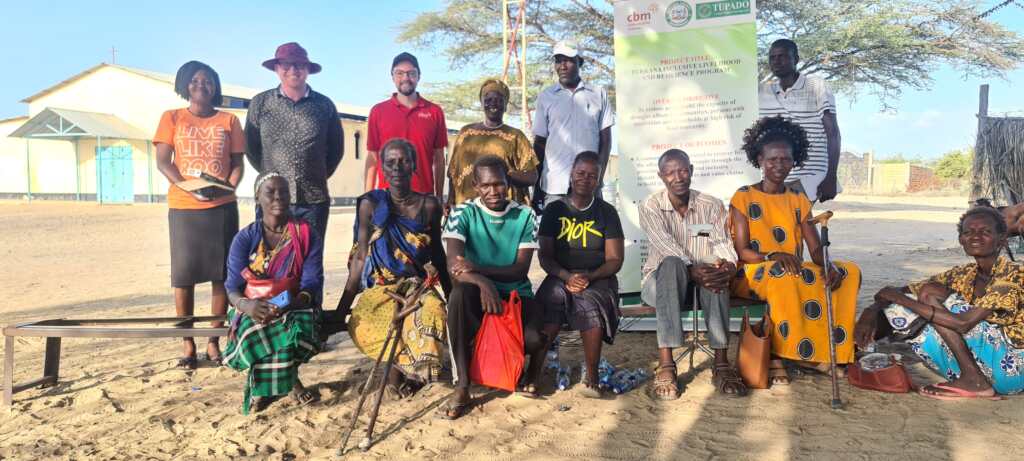
Humanitarian actors and development organizations must recognize and address the barriers faced by people with disabilities. Livelihood programs must ensure their equal participation in all aspects of social and economic life. This involves creating more inclusive economic environments and directly enabling people with disabilities, especially those from underrepresented groups, to find decent jobs and thrive in the economic process.
Join us in our mission to create inclusive livelihoods for all. Find out more at www.cbm-global.org.
Dr. Manuel Rothe works as CBM Global Senior Cash and Livelihood Advisor. Anthony Kimathi Ngari is the Humanitarian Coordinator of CBM Global Kenya.
https://cbm-global.org/news/building-resilient-green-livelihoods-for-people-with-disabilities
Related News
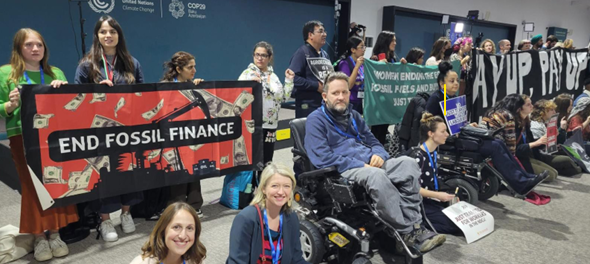
One in Five Is Not Enough: The gains on Disability Inclusion have not gone far enough
One in Five Is Not Enough: The gains on...
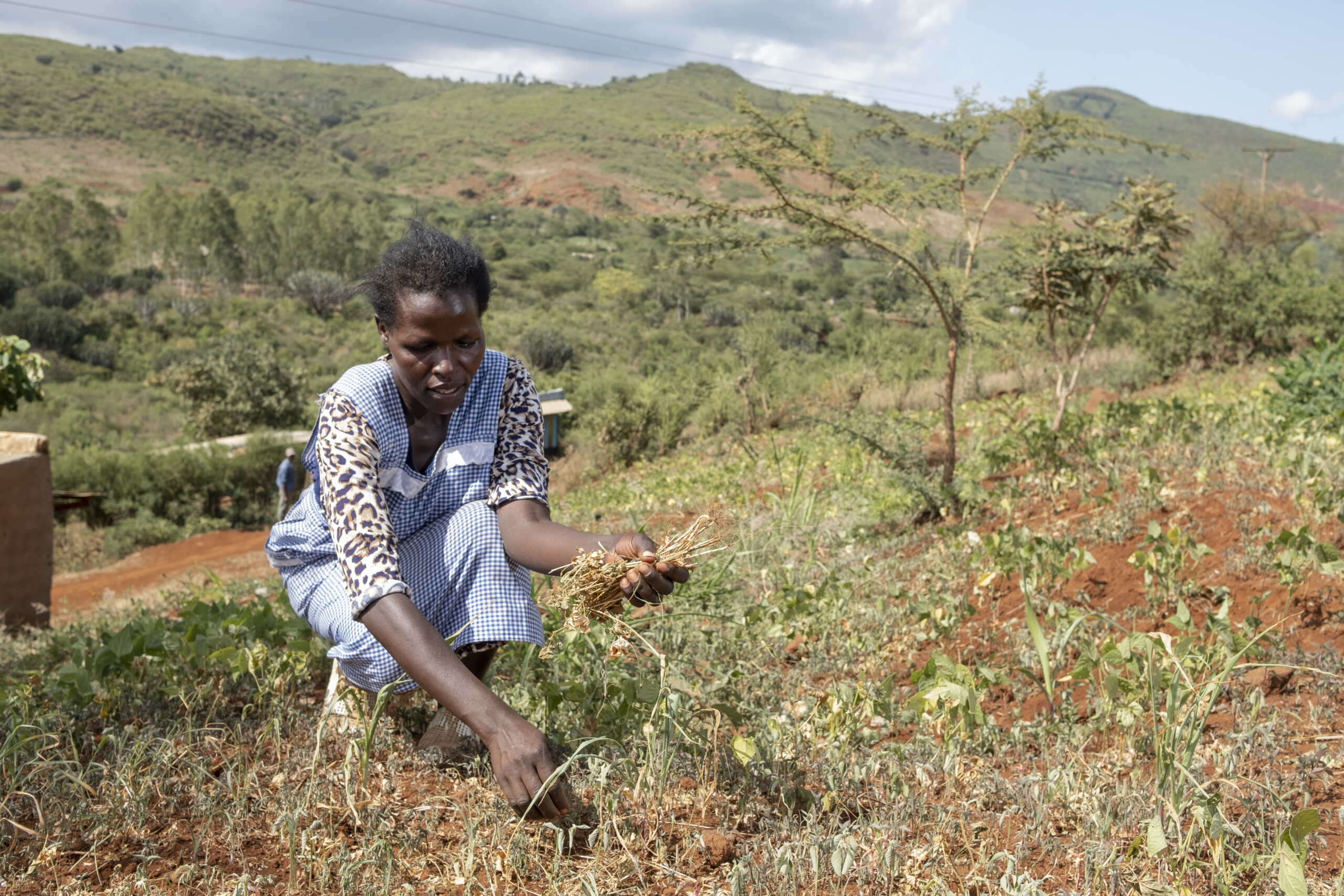
COP30 Is a Turning Point for Disability-Inclusive Climate Action
As the world gathers in Belém, Brazil, from 10–21 November 2025 for COP30, the message from...
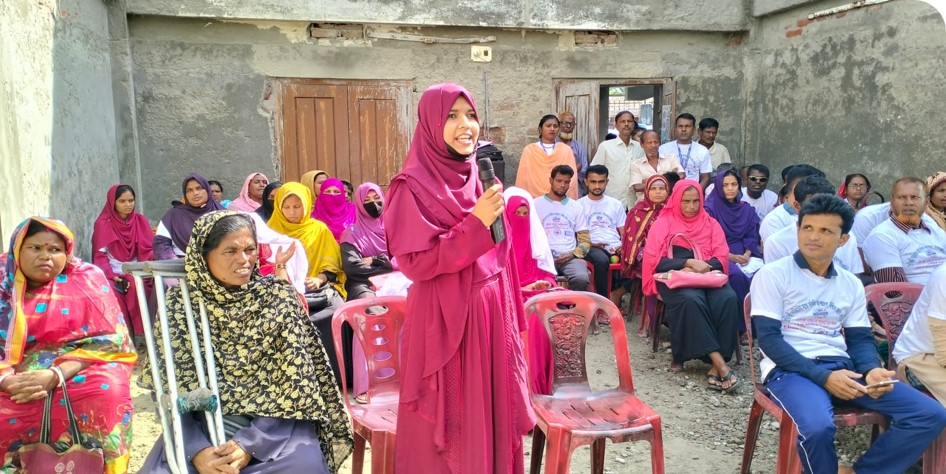
Achieving resilience for all requires funding disability inclusion in DRR
On International Day for Disaster Risk Reduction (DRR) 2025,...
